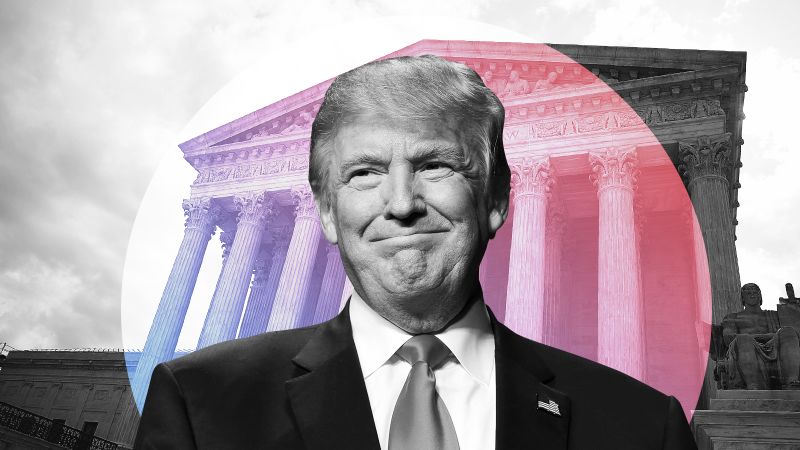The Supreme Court’s decision to hear Donald Trump’s claim that he should be shielded from criminal prosecution keeps the justices at the center of election-year controversy for several more months and means any verdict on Trump’s alleged subversion of the 2020 vote will not come before summer.
The country’s highest court wants the final word on the former president’s assertion of immunity, even if it may ultimately affirm a comprehensive ruling of the lower federal court that rejected Trump’s sweeping claim.
For Trump, Wednesday’s order amounts to another win from the justice system he routinely attacks. The justices’ intervention in the case, Trump v. United States, also marks another milestone in the fraught relationship between the court and the former president.
Cases related to his policies and his personal dealings consistently roiled the justices behind the scenes. At the same time, Trump, who appointed three of the nine justices, significantly influenced the court’s lurch to the right, most notably its 2022 reversal of nearly a half century of abortion rights and reproductive freedom.



If the question isn’t novel then please cite Supreme Court cases that have dealt with the question of executive immunity from criminal cases or just do what seems to be impossible on the internet: admit you’re wrong.
No one is denying that this may be an open-and-shut case but the Supreme Court has never taken up the question so…. it’s novel.
I assume you’re going to admit that you were wrong now? Or is that impossible on the Internet?
Please explain why the president would need to provide evidence for a trial that was unconstitutional.
That case was about executive privilege, not criminal statutes.
My reply was three sentences long. Please try not to get distracted, this will be on the test.
https://www.lawfaremedia.org/article/d.c.-circuit-rules-trump-is-not-immune-from-prosecution
Read the district court’s well cited and researched ruling doing exactly that.
Not a Supreme Court case. Why are you getting upvotes?
Hmmm I wonder.
Could it be because, as I said, this ruling cites multiple supreme court cases in context? That it provides you exactly what you asked for if you’d simply read it?
Nah, that can’t be it. Guess it’ll remain a mystery.